Results
-
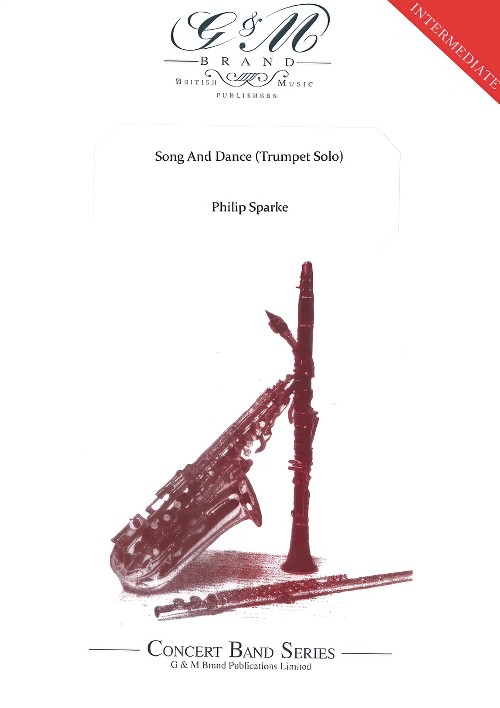 £74.95
£74.95Song And Dance (Trumpet Solo) (Concert Band - Score and Parts) - Sparke, Philip - Brand, Geoffrey
Philip Sparke's popular Song and Dance for cornet is now available for soloist with concert band. The Song commences with a 'Scotch snap' rhythm leading to a lyrical cadenza and ending with a return of the opening theme, muted. The Dance is lively and full of cross rhythms, but tonal and tuneful.
Estimated dispatch 7-14 working days
-
 £14.95
£14.95Song And Dance (Trumpet Solo) (Concert Band - Score Only) - Sparke, Philip - Brand, Geoffrey
Philip Sparke's popular Song and Dance for cornet is now available for soloist with concert band. The Song commences with a 'Scotch snap' rhythm leading to a lyrical cadenza and ending with a return of the opening theme, muted. The Dance is lively and full of cross rhythms, but tonal and tuneful.
Estimated dispatch 7-14 working days
-
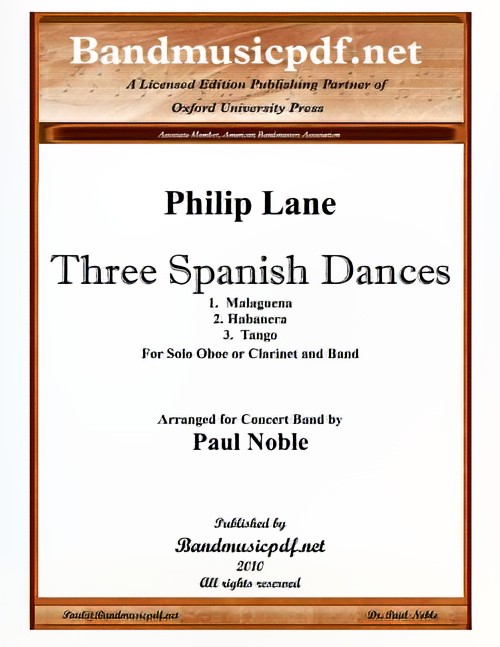 £110.00
£110.00Three Spanish Dances (Concert Band - Score and Parts) - Lane, Philip - Noble, Paul
These characteristic and expressive dances are written for solo oboe or solo clarinet. (A creative approach might be to include a dialogue between the two instruments.) The solo parts are of medium difficulty, with an extended cadenza in the first movement. The harp part (or electronic keyboard or piano) is important, but the work may be performed successfully without harp. The suite may be performed as a set or as individual pieces. This is a delightful showcase for the soloist(s), and holds great audience appeal with the typical Spanish rhythms.
Estimated dispatch 7-14 working days
-
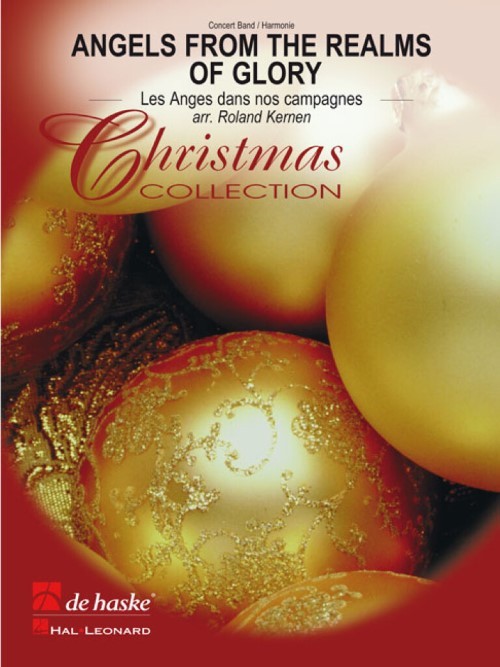 £94.99
£94.99Angels from the Realms of Glory (Concert Band - Score and Parts) - Kernen, Roland
The title of this clever arrangement reveals the Christmas song it is based on. The melody can be traced back to a French folksong from the 18th century which is now known around the world. In France it is called Les anges dans nos campagnes, in Germany it is most widely known as Engel auf den Feldern singen and in England it was originally called Angels From the Realms of Glory but it often known as Angels We Have Heard on High. Everyone will rejoice upon hearing the 'Gloria in excelsis Deo' refrain!Duration: 5:45
Estimated dispatch 7-14 working days
-
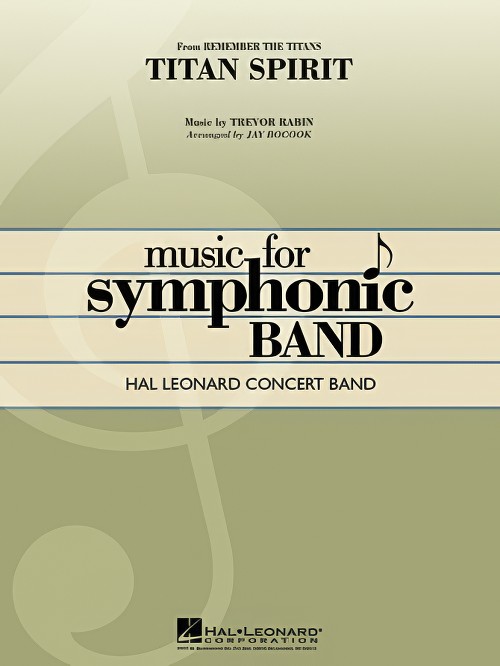 £72.99
£72.99Titan Spirit (from Remember the Titans) (Concert Band - Score and Parts) - Rabin, Trevor - Bocook, Jay
The uplifting 2000 movie Remember the Titans is not just another sports movie, but an inspirational true story that endures year after year. With a magnificent film score to match, here is an impressive arrangement of the main theme by Jay Bocook.Duration: 4:50
Estimated dispatch 7-14 working days
-
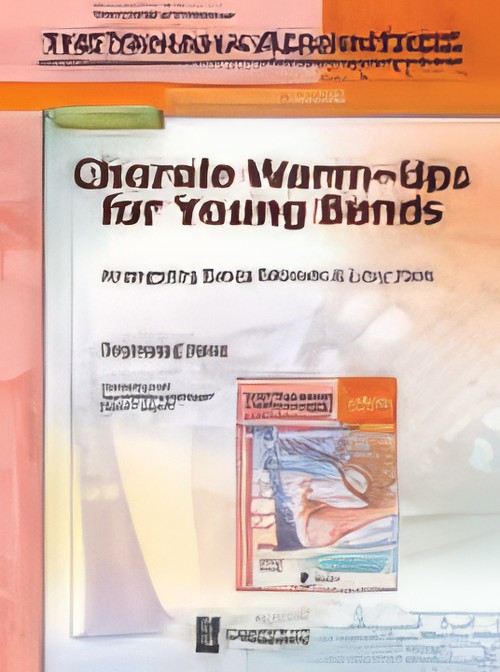 £50.00
£50.00Chorale Warm-Ups for Young Bands (Concert Band - Score and Parts) - Clark & Feldstein
Four effective warm-up chorales to build musicianship and work on tone quality, intonation, balance and blend with a young band. These chorales are based on popular hymns or songs like "Chester" and "In the Bleak Midwinter" and are scored for success by younger groups and will help to build their confidence and increase the beauty of tone produced by your band. These chorales are a perfect way to improve the legato and lyrical playing of your ensemble. This piece is correlated to The Yamaha Advantage band method book 2, but can be used with any band program of study.Duration: 3.30
Estimated dispatch 7-14 working days
-
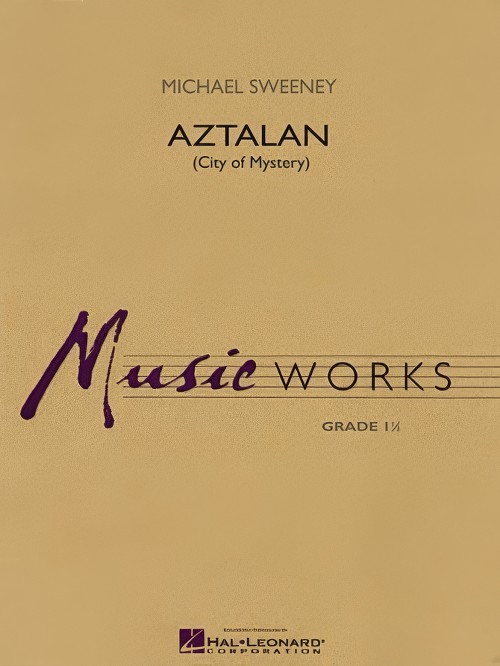 £47.50
£47.50Aztalan (City of Mystery) (Concert Band - Score and Parts) - Sweeney, Michael
The ancient city of Aztalan existed around a thousand years ago in southern Wisconsin, but disappeared mysteriously by around A.D. 1300. Through careful use of tone clusters, haunting melodies and creative percussion effects, this very easy work for band portrays a sense of mystery and drama.Duration: 2:45
Estimated dispatch 7-14 working days
-
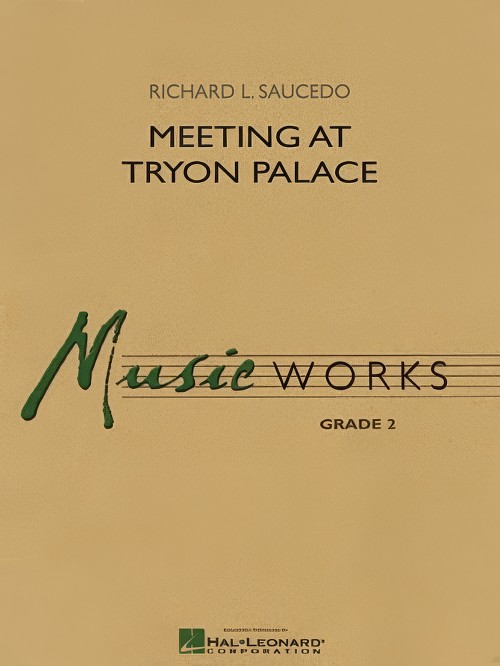 £57.50
£57.50Meeting at Ttyon Palace (Concert Band - Score and parts) - Saucedo, Richard L.
Described by the composer as bombastic, but with a groove, this work for young players opens with striking percussion statements. The band enters gradually, first with unison figures along with the percussion, and then additional layers. A contrasting slow section with flowing lines and minor harmonies sets the stage for the dramatic final section. A great way to showcase your percussion section.Duration: 4:10
Estimated dispatch 7-14 working days
-
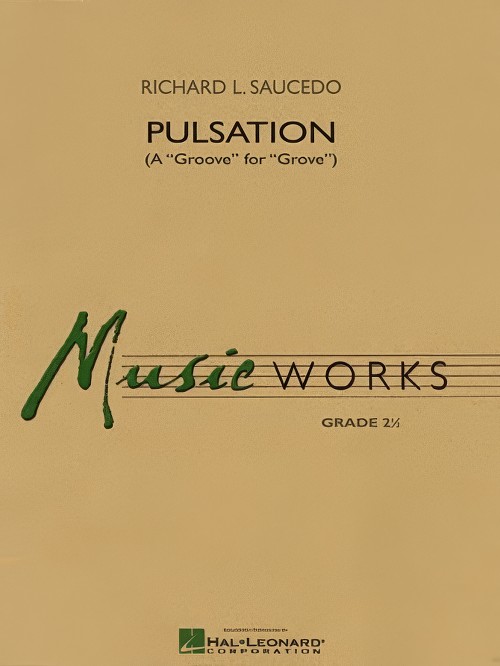 £57.50
£57.50Pulsation (A "Groove" for "Grove") (Concert Band - Score and Parts) - Saucedo, Richard L.
Written entirely in one tempo, but with the meter alternating between 4/4 and 6/8 throughout, Richard Saucedo creates an ingenious effect of pulsating motion along with layers of textures and sounds. Starting with a soloistic dialogue between flute and clarinet the work progresses to thicker sonorities and percussive effects including clapping and shouting. Definitely an enjoyable work that is off the beaten path!Duration: 2:45
Estimated dispatch 7-14 working days
-
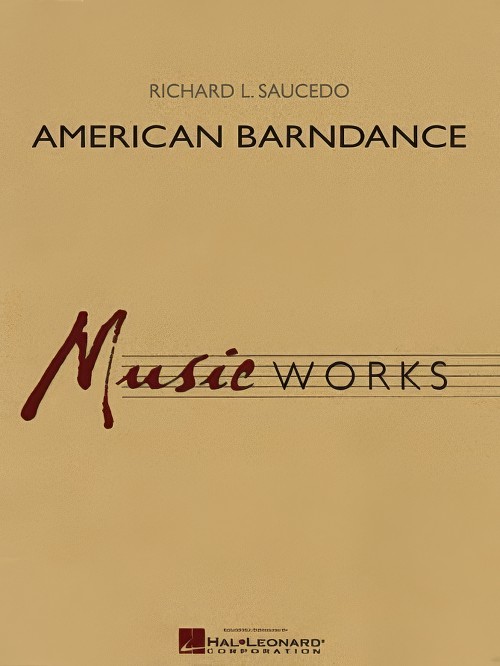 £76.99
£76.99American Barndance (Concert Band - Score and Parts) - Saucedo, Richard L.
Rhythmic and energetic, this lively work contains elements of an early American character but also features a poignant, calmer section with a lighter texture and interlaced lyric motifs. The piece builds to a dramatic peak with a powerful and majestic statement by the full ensemble. The final segment, however, becomes more and more frenzied with mixed meters and relentless percussion figures as it races to an exciting conclusion. Filled with humour and creativity, this unique composition will easily find a place in your contest or festival repertoire.Duration: 3:30
Estimated dispatch 7-14 working days
